The doctrine of Slovenian Armed Forces defines combat morale, which includes the readiness of the members of the Slovenian Armed Forces, as the greatest physical effort to overcome natural or artificial obstacles that must be overcome in the workplace or battle. Therefore, the military has specific requirements for military service. One of these is combat readiness, with physical fitness being the basis for action at the level of the human body and mind, for those who wish to achieve the skills that enable the exercise required for the professional soldier. From the viewpoint of the individual, no matter if he/she is a soldier or officer, he must be able to withstand the stresses and strains of various situations in the field, even in emergencies. This means that the body must adapt to a given situation, which requires extensive psychophysical preparation for a given situation. The profile of a high-class soldier must meet the criteria of a top athlete who is psychophysically healthy and at the highest level of his abilities when it is most needed. Certainly, there is a direct correlation between a soldier's health and his fitness, individual performance, and professional development. Throughout a career, unhealthy habits inhibit a soldier's development in the operational, self-developmental, and institutional areas of an Army leader's development strategy. Regular and optimal fitness training has a positive effect on reducing risk or injury in addition to enhancing psychophysical and combat skills. On the other hand, excessive fitness training is one of the risk factors for injuries in soldiers. For this reason, it is necessary to establish a new system of the training process and regular monitoring of physical and combat readiness of the SAF with the help of scientific and professional methodology. The proposed research project will run for two years. The goal of the project is to enhance physical and combat readiness and determine the epidemiology of injuries of members of the Slovenian Armed Forces (SAF). The results of the planned studies will be used in parallel to develop a mobile application that will facilitate the training process of SAF members and the transfer of knowledge to other interested entities and organizations. According to the project goals set, we will conduct several individual studies Briefly, Study 1 will be a cross-sectional prospective study with the main aim to conduct an epidemiological screening of injuries and estimate the risk factors, addressing only the most common injuries (?30 per year). Research 2 will be a longitudinal cross-sectional study in which we intend to validate testing batteries for the physical and combat readiness of SAF members. Research 3 will be a longitudinal intervention study in which we will compare the new strength and conditioning system with the existing system. We will sample adult subjects, i.e. officially employed members of the SAF (18-45 years of age, Study 1-3), of both genders, based on detailed inclusion and exclusion criteria for each study separately. The project will leave an extremely useful trail, such as a mobile application with a series of testing batteries aimed to determine physical and combat readiness, as well as preventive and rehabilitation practices for the most common injuries among SAF members. It should be emphasized that the project is limited to ensuring physical fitness for combat operations. For example, the project does not provide guidelines for the handling of firearms - that is, the accuracy of shooting, but the physical effort required to carry the weapon and prepare it for shooting. We believe that the new training system, supported by a mobile application, will come to life and provide SAF members with a more in-depth and better individualized approach to the training process, allowing individuals to optimally develop physical and combat readiness, thus enabling greater visibility both domestically and internationally.
Enhancement of physical and combat preparedness of SAF members
- Code V5-2106
- Date 01.10.2021 - 30.09.2023
- Funds provider Slovenian Research Agency
- Organisation University of Ljubljana Faculty of sport
- Holder Assoc. prof. Ph.D. Janez Vodičar
Abstract







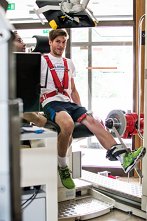

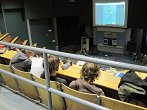




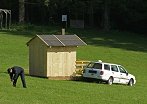
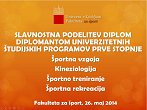
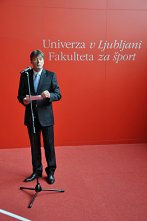
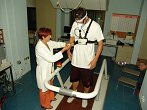
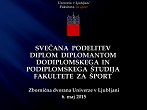


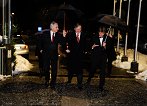













.png)